Search the Special Collections and Archives Portal
Search Results
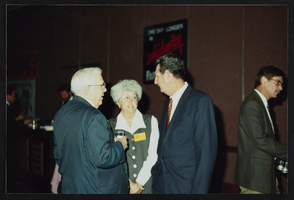
Fifth anniversary Frontier Strike: banquet, and rally, Culinary Union, Las Vegas (Nev.), 1996 September 21-22 (folder 2 of 4), image 54
Date
1996-09-21 to 1996-09-22
Description
Arrangement note: Series I. Demonstrations, Subseries I.A. Frontier Strike
Image
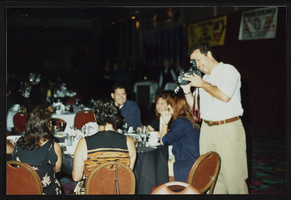
Fifth anniversary Frontier Strike: banquet, and rally, Culinary Union, Las Vegas (Nev.), 1996 September 21-22 (folder 2 of 4), image 55
Date
1996-09-21 to 1996-09-22
Description
Arrangement note: Series I. Demonstrations, Subseries I.A. Frontier Strike
Image
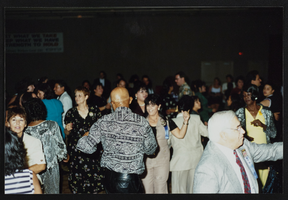
Fifth anniversary Frontier Strike: banquet, and rally, Culinary Union, Las Vegas (Nev.), 1996 September 21-22 (folder 2 of 4), image 56
Date
1996-09-21 to 1996-09-22
Description
Arrangement note: Series I. Demonstrations, Subseries I.A. Frontier Strike
Image
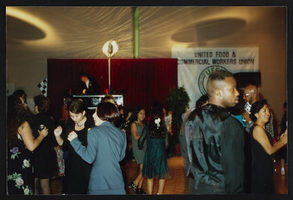
Fifth anniversary Frontier Strike: banquet, and rally, Culinary Union, Las Vegas (Nev.), 1996 September 21-22 (folder 2 of 4), image 57
Date
1996-09-21 to 1996-09-22
Description
Arrangement note: Series I. Demonstrations, Subseries I.A. Frontier Strike
Image
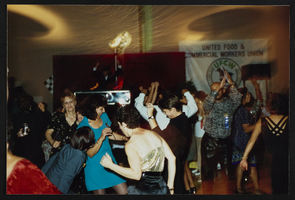
Fifth anniversary Frontier Strike: banquet, and rally, Culinary Union, Las Vegas (Nev.), 1996 September 21-22 (folder 2 of 4), image 58
Date
1996-09-21 to 1996-09-22
Description
Arrangement note: Series I. Demonstrations, Subseries I.A. Frontier Strike
Image
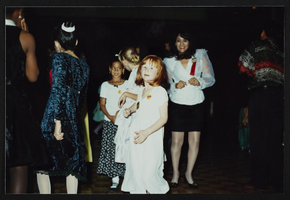
Fifth anniversary Frontier Strike: banquet, and rally, Culinary Union, Las Vegas (Nev.), 1996 September 21-22 (folder 2 of 4), image 59
Date
1996-09-21 to 1996-09-22
Description
Arrangement note: Series I. Demonstrations, Subseries I.A. Frontier Strike
Image
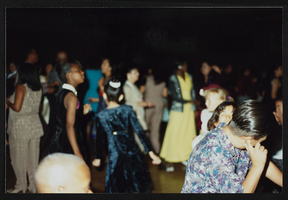
Fifth anniversary Frontier Strike: banquet, and rally, Culinary Union, Las Vegas (Nev.), 1996 September 21-22 (folder 2 of 4), image 60
Date
1996-09-21 to 1996-09-22
Description
Arrangement note: Series I. Demonstrations, Subseries I.A. Frontier Strike
Image
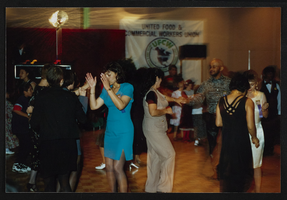
Fifth anniversary Frontier Strike: banquet, and rally, Culinary Union, Las Vegas (Nev.), 1996 September 21-22 (folder 2 of 4), image 61
Date
1996-09-21 to 1996-09-22
Description
Arrangement note: Series I. Demonstrations, Subseries I.A. Frontier Strike
Image
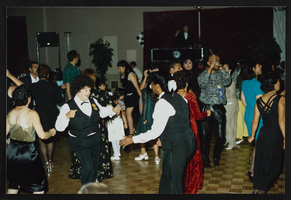
Fifth anniversary Frontier Strike: banquet, and rally, Culinary Union, Las Vegas (Nev.), 1996 September 21-22 (folder 2 of 4), image 62
Date
1996-09-21 to 1996-09-22
Description
Arrangement note: Series I. Demonstrations, Subseries I.A. Frontier Strike
Image
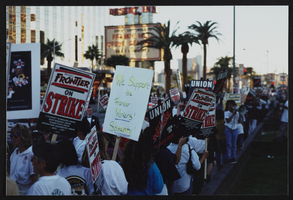
Fifth anniversary Frontier Strike: banquet, and rally, Culinary Union, Las Vegas (Nev.), 1996 September 21-22 (folder 2 of 4), image 63
Date
1996-09-21 to 1996-09-22
Description
Arrangement note: Series I. Demonstrations, Subseries I.A. Frontier Strike
Image
Pagination
Refine my results
Content Type
Creator or Contributor
Subject
Archival Collection
Digital Project
Resource Type
Year
Material Type
Place
Language
Records Classification
